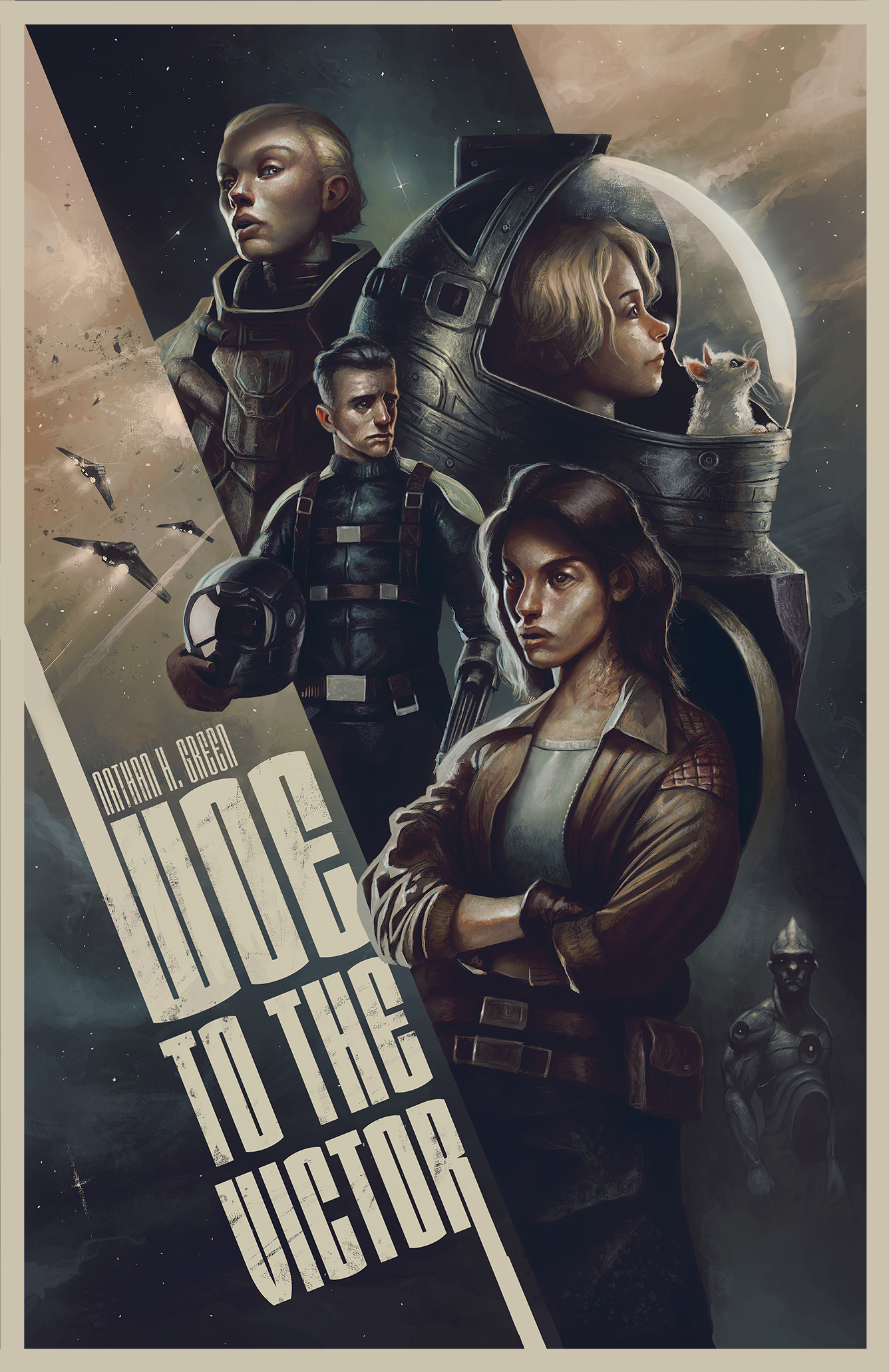SPSFC 3 Quarterfinalist: Woe to the Victor
The judges on Team ScienceFiction.news have spent three months diving into the 25 books in our allocation for the third Self-Published Science Fiction Competition, some reading the first 15-20 percent and others reading every book in full. After that process we've selected our six quarterfinalists.
The first of the quarterfinalists, which are being announced in no particular order, is Woe to the Victor by Nathan H. Green.
The military science fiction novel begins on Earth's last day, when the Maaravi have made their long-dreaded arrival and unleashed terrible weapons from orbit to wipe out humanity. While the combined military of the planet sacrifice themselves to buy time, a small number of humans flee on survival ships to far-distant planets in a desperate attempt to avoid total extinction.
Though MilSF features a lot of combat and military strategy, this novel has a compelling focus on the psychological effects of the looming eradication of humanity and the live-or-die process of who gets to be on the refugee ships and who is left behind on Earth.
Judge D.M. Barnham had this to say about the book:
Another aspect I love is how completely outclassed humanity is. They've crossed paths with a foe that outdoes them so completely and utterly that the small victories they achieve mostly involve just surviving. It's such a breath of fresh air. There's no silly Independence Day rubbish here. Hope isn't in victory, it's in a ship filled with a few thousand humans who manage to escape while billions of others die.
Woe to the Victor also features the timely subject of accelerated artificial intelligence, which is the sole advantage humans have over the Maaravi. In a sign of how dire the situation has become, restraints that have been kept in place on AI since its creation are removed from warships, as pilot Lewis Black does in this passage from the novel:
That was the real problem with humanity allowing itself a Pandora's box, whether it be nuclear weapons, genetic engineering, or AI. It was only a matter of time, be it decades, centuries, or millennia until a situation arose where things were desperate enough to open the box, and pray it could be closed later. ...
With her safeties off, Carol could have full control of the Talon, and of herself, if she wanted it. The final restraints were simply code blocks in the Talon's internal software. Against Carol those software restraints were a joke. He held his breath.
Aberrant code scrolled over the screen.
Our only quibble with the novel thus far is that humanity has advanced to interstellar travel and sentient AI but still hasn't adopted the metric system. What is it going to take?

Add a Comment
All comments are moderated before publication. These HTML tags are permitted: <p>, <b>, <i>, <a>, and <blockquote>.

